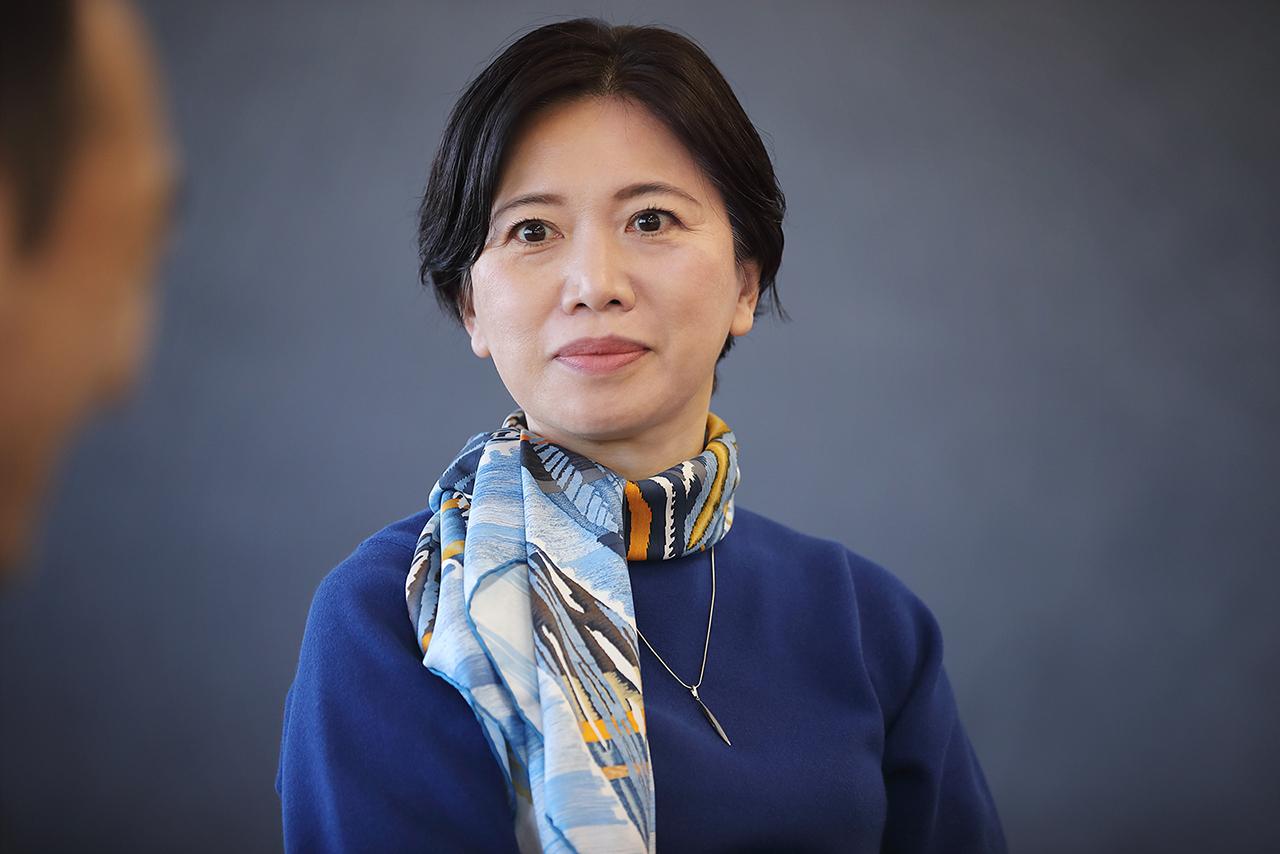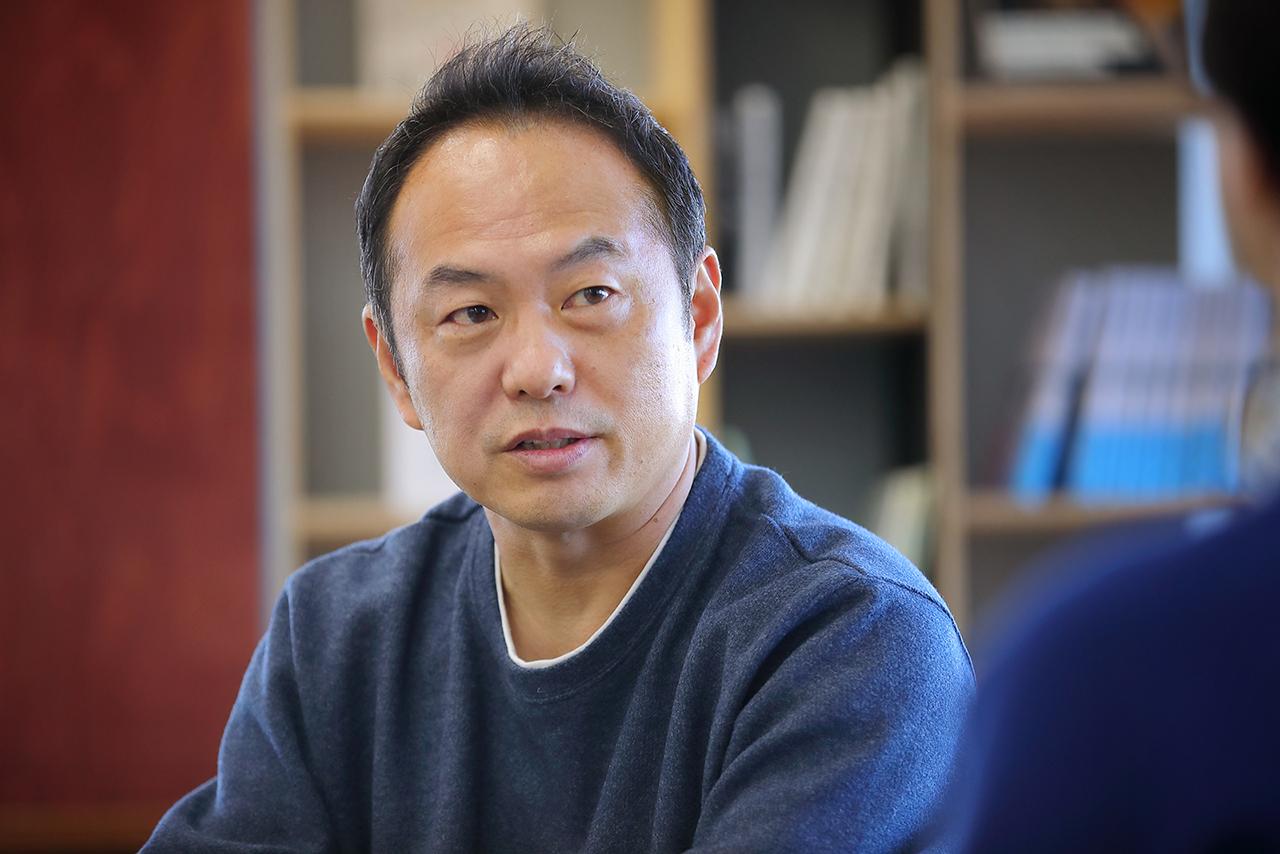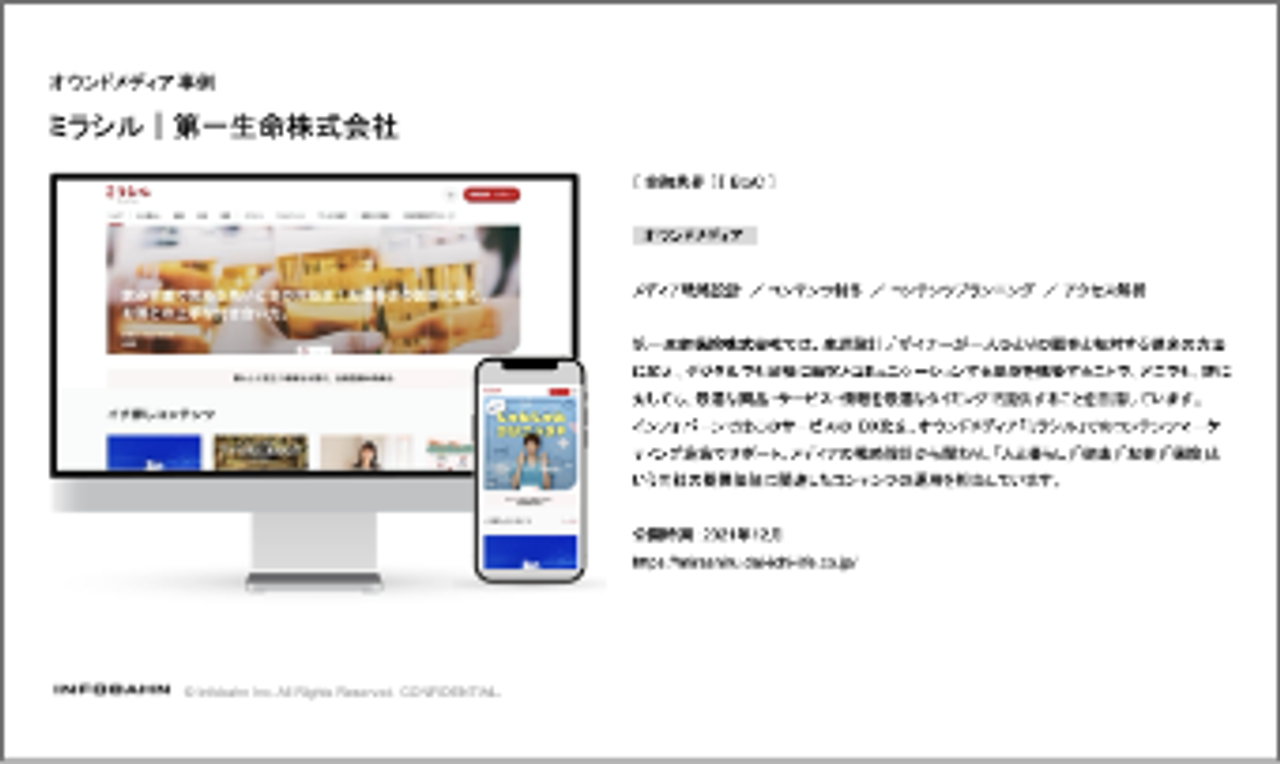The time has come for marketers to be conscious of solving social issues in order to continue to connect with customers. As a result, it can be said that the question is how the existence of a company will face society.
Ultimately, the challenge is to spread purpose and mission, vision, and values (MVV = mission, ideal state, code of conduct) in various companies.
About 12 years ago, Mr. Hiroto Kobayashi, CEO of Infobahn, wrote a book titled “Why are media-oriented companies strong?” (2011, published by Gijutsu Hyoronsha), he preached, “Build trust with users, deepen ties, and become a company that is connected to society.”
In other words, he is admonishing that it is necessary for companies to become media. In order to solve social issues from a broad perspective, the concept of “media” is used to describe how a company should be. It is a word expressed using
Infobahn is working on the construction of owned media and brand communication support as a creative company that creates corporate value under the keyword of “Corporate mediaization” preached by Mr. Kobayashi.
A serial series that considers the role of marketers who should play a part in the mediaization of companies. In an era when the reason for existence of a company is questioned, the theme is “What kind of perspective and action should a company take in order to continue to provide value to society, rather than just pursuing sales improvement and branding results?” , Dialogue with prominent marketers was realized.
Junya Tanaka of Infobahn (left) and Yukiko Yamaguchi of Panasonic Connect (right).
This time, the second installment, we invited Ms. Yukiko Yamaguchi, Managing Executive Officer and CMO of Panasonic Connect, to talk with Mr. Junya Tanaka, President and CEO of Infobahn, to understand how we should create contact points with society. To go.
Ideal for each employee to become an “owned media”
Mr. Junya Tanaka (hereafter, Tanaka):Infobahn defines the “mediaization of a company” as the realization of a purpose, that is, a company’s connection with society in order to contribute to society and continue to exist as a part of society. As one of the tools for companies to connect with society, we support the construction and operation of owned media, but in the past, most of them were web magazines consisting of text and visual articles.
Until about 10 years ago, there was such a movement. I think that all bases need to continue to exist as ‘points of contact’ that connect with society.” This is the essence of corporate mediaization.
Ms. Yukiko Yamaguchi (hereafter Yamaguchi):I also think that all the places where a company interacts with customers are owned media. The supply chain specialized media “GEMBA”
that we are developing with the support of Infobahn can be said to be owned media in the narrow sense, and it can be said that it is a place where you can experience something like a customer experience center.
Click here for a collection of production examples of new owned media by Infobahn

Yukiko Yamaguchi
Yukiko Yamaguchi: Joined Recruit Cosmos in 1991. After that, she worked at a trading company to carry out various overseas projects and import sales and marketing of overseas IT related products. After working in marketing management positions at Cisco Systems, Overture, Yahoo Japan, and IBM Japan, she assumed her current position in December 2017. She has been in corporate marketing communications for over 20 years. She is currently taking on the challenge of new marketing methods through corporate culture reform, such as increasing the angle of compliance.Tanaka:
Pride in the company, in other words employee engagement, is also important.Yamaguchi:
When marketing and communication work together, you can communicate the essentials. I feel that there is no need to forcefully create content, and that purpose management will also be accelerated.
In order to achieve this, the first step is to foster a corporate culture that allows the corporate strategy to function properly. It depends on the size of the company, but if it is a company with tens of thousands of employees, the “corporate culture” will change the progress.Tanaka:
I agree. However, culture is not something that you can say, “Let’s do this from tomorrow.” It’s something you keep doing and keep getting better at. What are you focusing on at Panasonic Connect?Yamaguchi:
For example, in order to change the current culture, it is necessary to change the mindset of each individual, but that can never be done by one means. It is necessary for various departments to proceed with many measures in parallel.
Our company was established when Panasonic became a holding company, and since April 2017, when our predecessor Connected Solutions was established, we have been promoting reforms for about five and a half years. The other day, when I took a survey of all employees, 75% of the employees answered that they think the company’s culture has changed. I take a positive view that changes are definitely occurring in a company that has been difficult to change until now. We aim to reach 100%.
Focus on actionable measuresTanaka:
What measures drove the numbers?Yamaguchi:
I think it was highly effective to have something visible and an experience. For example, changing the clothes to casual, changing the office and communication style, etc. were effective in changing the mindset of the culture.
If you count the things you have been working on, such as personnel system reforms, communication reforms, and IT measures, there are a tremendous number of measures, and each team is moving them. It is extremely important to practice and communicate without giving up. That is, commitment and communication at the top.
We also actively hold ALL HANDS MEETING led by our CEO, Higuchi, and internal media. We have close to 12,000 employees in Japan alone, so it is important to create such opportunities and communicate with them.Tanaka:
Among the managers, there are some who are good at speaking and communicating, but there are others who are not. Do you have any training?Yamaguchi:
Whether you are a good speaker or not, media training is essential. I think most managers of global companies are. Because communication from top management is important for changing corporate culture.
Speed up decision-making and disclose processesYamaguchi:
One of the reasons we are doing culture reform is to make decisions faster. Communicate frequently to speed up decision-making. And being open is a must. It’s an environment where you can feel free to share, “I’m in this situation now.” This will greatly increase the speed of reform.Tanaka:

Junya Tanaka
Tanaka: Junya / Joined Credit Saison in 1990. Joined Infobahn in 2015 after working at JR East Planning, Dentsu, Transcosmos, Metro Ad Agency, and Dentsu Razorfish. After being appointed as a director in 2017, he will assume his current position in 2021. In 2022, he published his book “Gundam Meets Business” (co-author). He is active in various fields in the marketing field, such as the representative director of the Marketer Career Association, the secretary of the Digital Marketing Research Institute, the Advisory Council of Advertising Week Asia, and the concurrent faculty member of Sanno University.Yamaguchi:
The mindset of management is also important for this. What Higuchi always tells his board members is, “Even if it’s bad news, the first thing you should say when you come out of the field is thank you.” Whether it’s a quality problem or a problem with a customer, it’s a culture of saying “thank you” first. If you scold him, he will never come up again. This is also one of the ways we connect with our employees. Creating an environment where people can talk openly is extremely important for reforming a good company.
To create empathy, it has to be realTanaka:
I talked about owned media at the beginning, but I think that “disclosure of the process of what we are doing” will be important in the future. Show the continuous process, not the cut-out moment. For this reason, I believe that employees, stakeholders, customers, and future customers will feel empathy and be empowered.Yamaguchi:
I think so. For example, Panasonic has an easy-to-understand image of “home appliances”, but our business is in charge of BtoB solutions. Communication in this area is by no means easy to understand, but I think it’s important for the marketing strategy to simply “communicate properly and honestly”.
This company has this kind of culture, this kind of concept, and this kind of people working there. It provides such value and has such existence value. To create empathy, it has to be real, not wishy-washy, not fake. However, it does not mean that you should disclose everything. How to show the story is a challenge, and it is also a difficult point.Tanaka:
Infobahn’s job is to “show the story”, but there is certainly an outward and inward communication. I think there are still many things that can be improved, such as how to communicate, when to communicate, and target segmentation.
If the facts, such as the reality and processes that exist within the company, are beneficial or create empathy, it is better to disseminate them as much as possible. The storytelling method requires trial and error, but I think it’s like making it into a manga or dancing a little in a video. Rather than revealing the real story as it is, how to create empathy based on facts. It may be possible to calculate backwards and get closer.Yamaguchi:
I’m always thinking about what kind of content will make people think, “Panasonic Connect is great.” One is the fact that our business is properly leading society. With that in mind, it is important to implement measures that are “first in Japan” and “first in the manufacturing industry.” And I think that our company is meaningless unless we take actual actions that can serve as a reference for Japanese companies.
In fact, we aim to be the most stringent company in Japan against compliance violations. We studied various companies and created strict penalties. Regarding compliance, we regularly discuss compliance among officers and have informal meetings with employees in the workplace, but when a compliance incident occurs, CEO Higuchi has a one-on-one relationship with the perpetrator. Then you realize how important it is.Tanaka:
That process is also a story. For example, the act of going to an employee to interview is visualized as the travel distance of the top. There is also a way to convey a story such as “There is no president of a Japanese manufacturing or BtoB solution company who travels such a long distance.” A culture of hiding things, a culture of reporting only good things, is no good.Yamaguchi:
Certainly, such a story will be content. In addition, we have to think about what makes “Panasonic Connect Unique.”
Background that one person in the company can sendYamaguchi:
Even at GEMBA, there is an opinion that “the story of the process is interesting even if it is currently ongoing.” When the site started, individuals other than department heads rarely appeared in the media, and it was a culture of not wanting to appear. I think I had a strong awareness that I didn’t want to need my boss’s permission for what I said, or that what I said would become a problem later. But things are gradually changing, and I get suggestions from members who actually interact with customers, saying things like, “This is an interesting story,” or, “I want you to take up this matter.”Tanaka:
You can see that the awareness and opinions of each and every Panasonic Connect member have changed. If the story is already interesting, we should make sure that the story of the process is “interesting” even for people who don’t know the story.Yamaguchi:
It’s nice to hear stories like that coming out of the field. I think that Japanese companies have a history of prioritizing companies over individuals and, in a sense, neglecting the human rights of individuals during the high-growth period. This trend is changing. It is precisely because of this change that individuals in the field can transmit the reality of being in the field. If there is a corporate culture that values people, the story that the company sends will also change.
Sponsored Content by Infobahn
Source: BusinessInsider
Emma Warren is a well-known author and market analyst who writes for 24 news breaker. She is an expert in her field and her articles provide readers with insightful and informative analysis on the latest market trends and developments. With a keen understanding of the economy and a talent for explaining complex issues in an easy-to-understand manner, Emma’s writing is a must-read for anyone interested in staying up-to-date on the latest market news.

